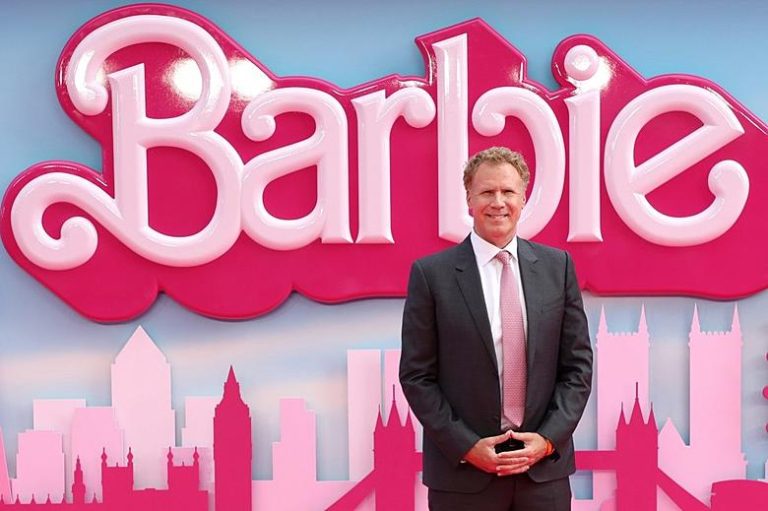
Mattel, the renowned toy company, has been a household name for over 75 years. With a history rooted in creativity and innovation, Mattel has consistently produced some of the most iconic toys in the industry. From Barbie dolls to Hot Wheels cars, Mattel has been a leader in the toy industry, capturing the hearts and imaginations of children worldwide.
As CEO of Mattel, Ynon Kreiz has been instrumental in leading the company to new heights. Under his leadership, Mattel has embraced digital transformation, launching interactive and engaging online platforms for children to enjoy. This forward-thinking approach has helped Mattel stay relevant in an ever-evolving toy market, solidifying its position as a top contender in the industry.
One of the key strategies implemented by Mattel under Ynon Kreiz’s leadership is the focus on sustainability. With an increasing emphasis on eco-friendly practices, Mattel has committed to reducing its carbon footprint and promoting environmental stewardship. This commitment to sustainability not only benefits the planet but also resonates with consumers who are becoming more conscious of their purchasing decisions.
As the toy industry continues to evolve, Mattel remains at the forefront, adapting to changing trends and consumer preferences. With a rich history of success and a commitment to innovation, Mattel is poised to continue leading the toy industry for years to come.
Can CEO Mattel Lead the Toy Industry Into the Future?
CEO Mattel is at the forefront of the toy industry, but can they continue to lead the way in innovation and growth? In this article, we will explore the strategies and decisions that have helped Mattel become a dominant player in the toy market, as well as the challenges they face in maintaining their position. Join us as we delve into CEO Mattel’s leadership in the toy industry and discover what the future holds for this iconic company.
Mattel’s History and Background
Mattel is a global toy company that was founded in 1945 by Harold Matson and Elliot Handler. The company is best known for iconic toys such as Barbie, Hot Wheels, and Fisher-Price. Since its inception, Mattel has grown to become one of the largest toy manufacturers in the world, with a presence in over 150 countries.
Mattel’s CEO: Ynon Kreiz
Ynon Kreiz has been the CEO of Mattel since April 2018. He brought with him a wealth of experience in the media and entertainment industry, having previously served as the CEO of Maker Studios and as a partner at venture capital firm Balderton Capital. Kreiz’s leadership has been instrumental in driving innovation and growth at Mattel, as the company continues to adapt to the changing toy market.
Mattel’s Industry Challenges
Like many companies in the toy industry, Mattel faces a number of challenges in today’s rapidly evolving market. Competition from digital entertainment and changing consumer preferences have put pressure on traditional toy manufacturers. Additionally, the rise of e-commerce has changed the way that toys are bought and sold, forcing companies like Mattel to rethink their retail strategies.
Mattel’s Strategic Initiatives
- Investing in digital and e-commerce capabilities to reach consumers online
- Expanding into new product categories and licensing partnerships
- Focusing on sustainability and social responsibility in product development
- Revamping iconic brands like Barbie and Hot Wheels to stay relevant with today’s consumers
Mattel’s Financial Performance
Despite facing challenges in the industry, Mattel has shown resilience and adaptability under CEO Ynon Kreiz’s leadership. In the company’s most recent earnings report, Mattel reported a revenue growth of 8% year-over-year, exceeding analyst expectations. This positive performance is a testament to Mattel’s ability to innovate and stay competitive in a rapidly changing market.
In conclusion, under the guidance of CEO Ynon Kreiz, Mattel continues to be a dominant player in the toy industry, driving growth and innovation in the face of industry challenges.
- Launching new product lines to appeal to diverse audiences
- Emphasizing digital and online sales channels
- Investing in sustainability and environmentally-friendly practices
- Increasing focus on digital and online sales channels
- Expanding into new markets and product categories
- Investing in research and development for new product innovations
Conclusion
In conclusion, CEO Mattel has effectively led the toy industry through innovative approaches, strategic partnerships, and a strong focus on sustainability. Under his leadership, Mattel has successfully adapted to changing consumer preferences by embracing digital transformation and enhancing its product offerings. The company’s commitment to diversity and inclusion has not only strengthened its brand reputation but also resonated with a broader audience. Additionally, Mattel’s emphasis on sustainability and social responsibility reflects its dedication to creating a brighter future for both children and the planet. Overall, CEO Mattel’s visionary leadership has positioned the company as a trailblazer in the toy industry, setting a benchmark for innovation and responsible business practices.
Furthermore, CEO Mattel’s emphasis on fostering a culture of creativity and collaboration within the organization has enabled the company to stay ahead of the competition and drive growth. By empowering employees to think outside the box and take calculated risks, Mattel has been able to launch successful products and initiatives that have resonated with consumers worldwide. As the toy industry continues to evolve, CEO Mattel’s strategic vision and commitment to driving positive change will undoubtedly play a pivotal role in shaping the company’s future success. With a focus on sustainability, innovation, and inclusivity, Mattel is well-positioned to continue leading the toy industry and inspiring generations to come.







